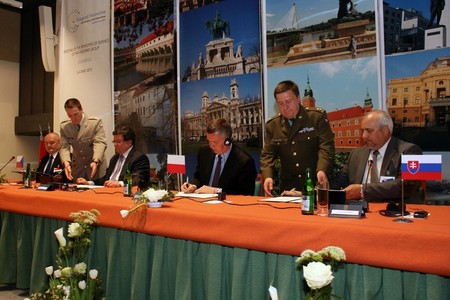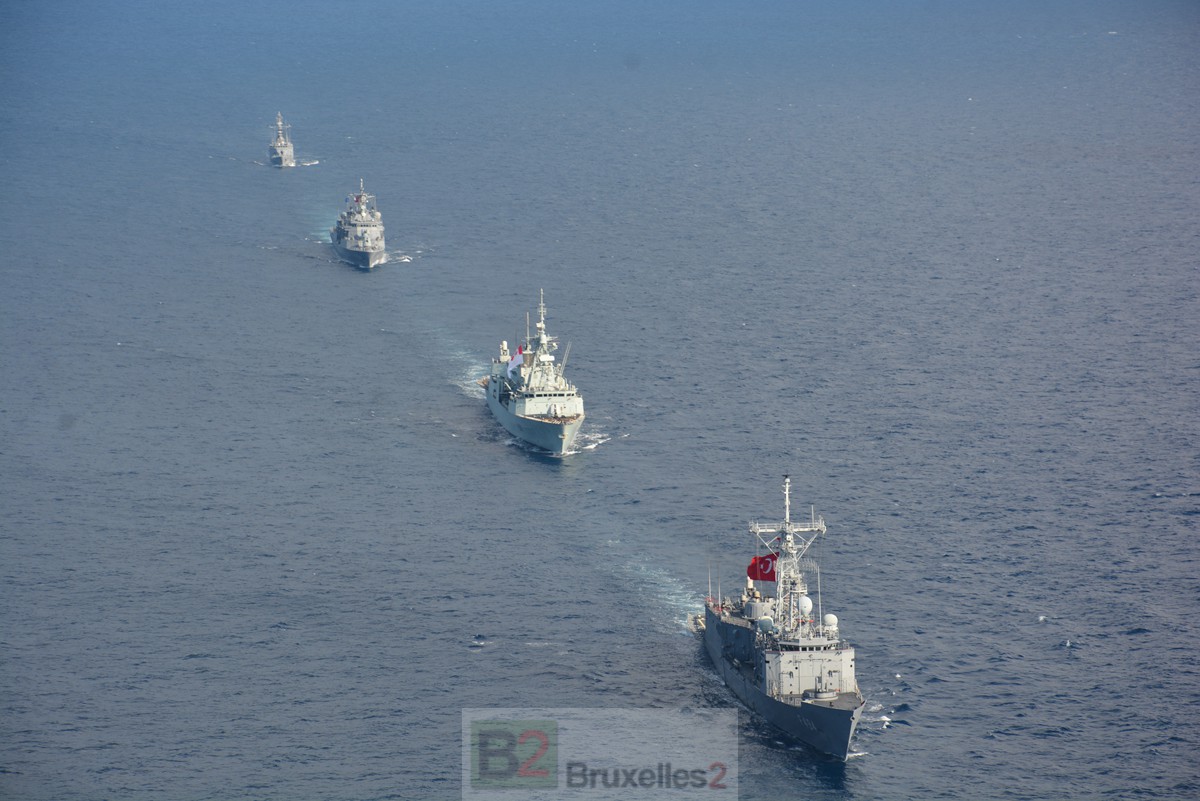The V4 signs for the permanence of the battlegroup in 2016

(BRUSSELS2) It is in a small town in northern Bohemia, in Litomeřice, that the four defense ministers of the Visegrad group - Poland, Hungary, Slovakia, Czech Republic - met today (Friday May 4) to sign the agreement to set up a joint battlegroup by 2016. The Visegrad group (V4) will take "guard" in the EU's rapid reaction force in the first half of 2016, as specified in the schedule broadcast on B2.
Read also: Battlegroup, a problem, chronic?
This group should include around 3000 soldiers with Poland as the framework nation. This will provide 1200 soldiers, the Czech Republic 800, the Slovaks 400 and the Hungarians 350. Medical air transport will be provided by the Czechs with a medical team and a Casa plane equipped to transport the wounded. These will also provide a combat unit of Pandurs according to the Chief of Staff, Vlastimil Picek. Austria could also provide logistical assistance.
The four countries also plan to set up a joint team to make joint purchases - including terrestrial radars according to some information collected by B2. They could in particular the device which will be tested within the framework of the European Defense Agency, with Austria in the second half of 2012. The first joint training should begin in 2013 and continue after the end of the ISAF mission (NATO) in Afghanistan, a region where the four countries deploy a total of nearly 3.600 soldiers.
The "V4" (the nickname of the Visegrad group) also reaffirmed a few days before the Chicago summit their desire to speak with one voice alongside the other countries and in particular their commitment signed on the sidelines of the last ministerial meeting of the 'Covenant,'Responsibility for a strong Nato". They have thus identified several areas where cooperation can be intensified: air traffic control training (FAC/JTAC), nuclear, radiological, biological and chemical (CBRN) defense, helicopter pilot training, logistical cooperation , medical treatment facilities, multinational experimentation, counter-improvised explosive device (C-IED) and explosive ordnance disposal (EOD) training.
(Nicolas Gros-Verheyde)
Read also: The “Visegrad” will also cooperate… especially in words!


